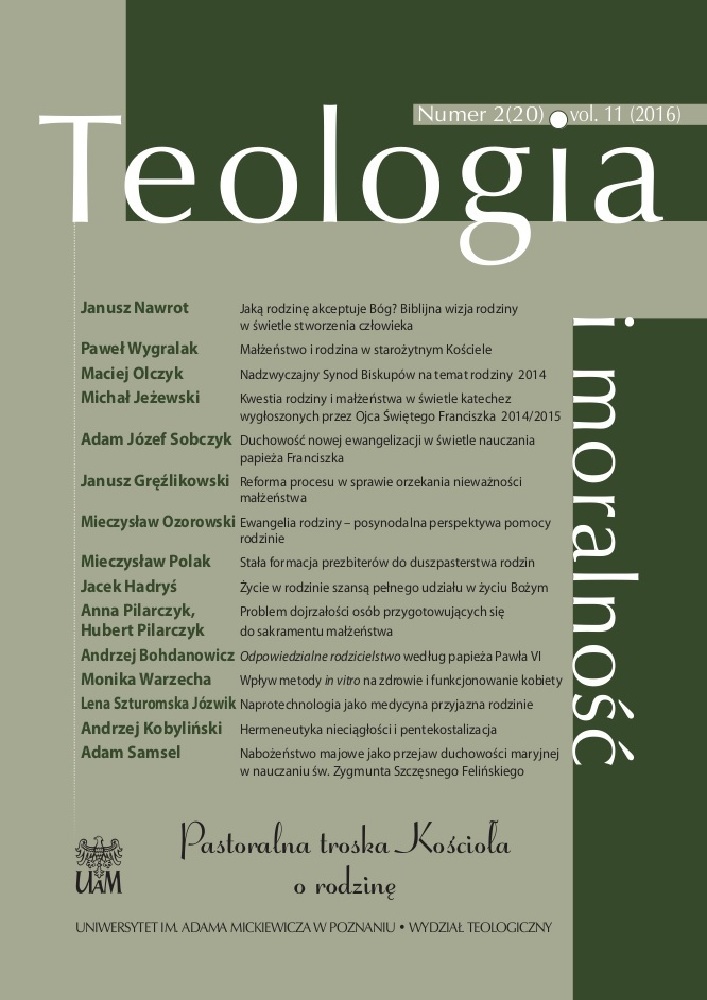Abstract
A range of issues associated with responsible parenthood and presented in Pope Paul VI’s encyclical letter Humanae vitae seems to be an interesting proposal for proclaiming good news about marriage and family to contemporary people. With regard to man's innate drives and emotions, responsible parenthood means that man's reason and will must exert control over them. However, marriage and conjugal love are by their nature ordained not only toward the procreation, but also education of children. This, in turn, is not limited only to life on earth, but also to eternity. Focusing on intrinsic relationship between marital act and procreation can be used in a dialogue with infertile married people. However, it has to be presented in a comprehensible way for young people by resorting to personalistic anthropology and a range of branches of science devoted to mankind so that they could understand that in the procreative faculty the human mind discerns biological laws that apply to the human person. Only then will the teaching of the Church about responsible parenthood become a powerful tool in new evangelization.
References
Paweł VI, encyklika Humanae vitae, Rzym 1968.
Jan Paweł II, encyklikaVeritatissplendor, Rzym 1993.
Jan Paweł II, adhortacjaFamiliarisconsortioRzym 1981.
Jan Paweł II, Mężczyzną i niewiastą stworzył ich. O Jana Pawła II teologii ciała, Lublin 1981.
Jan Paweł II, Mężczyzną i niewiastą stworzył ich. Chrystus odwołuje się do . O Jana Pawła II teologii ciała, red. T. Styczeń, Lublin 1981.
Kongregacja ds. Wychowania Katolickiego, Wytyczne wychowawcze w odniesieniu do ludzkiej miłości, Rzym 1983.
Fraling B., Sexualethik. Ein Versuch aus christlicher Sicht, Paderborn–Wien 1995.
Hildebrand D., Przemienienie w Chrystusie, Kraków 1981.
Kowalczyk S., Podstawy światopoglądu chrześcijańskiego, Wrocław 1986.
License

This work is licensed under a Creative Commons Attribution-NoDerivatives 4.0 International License.
